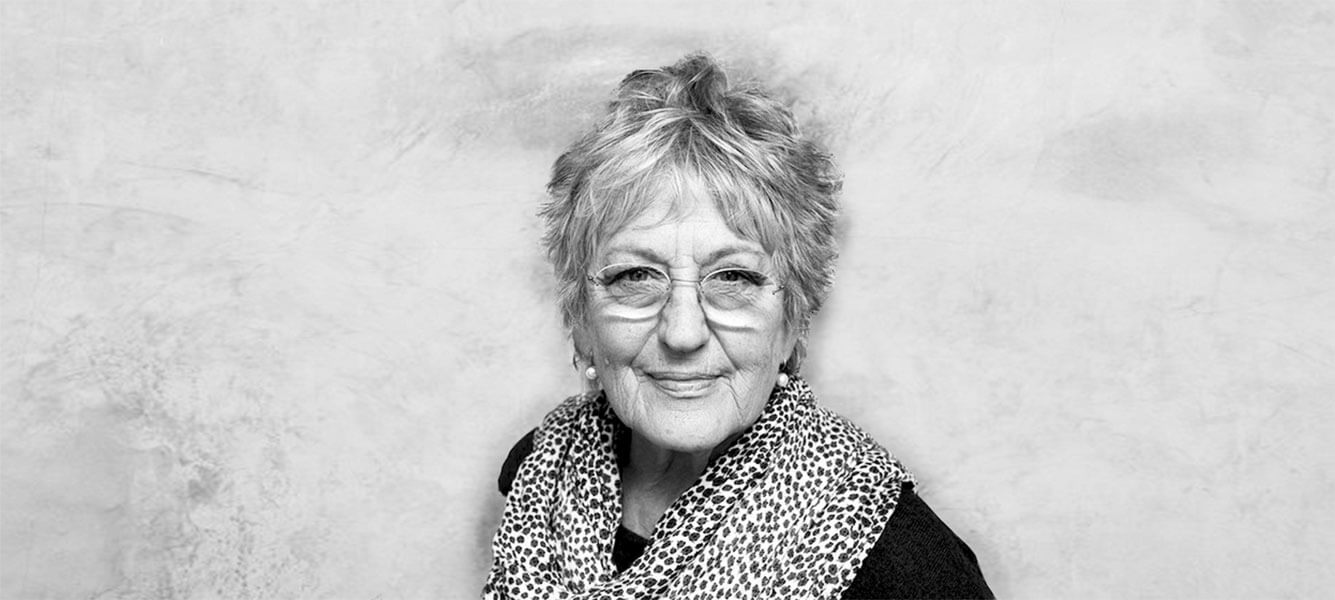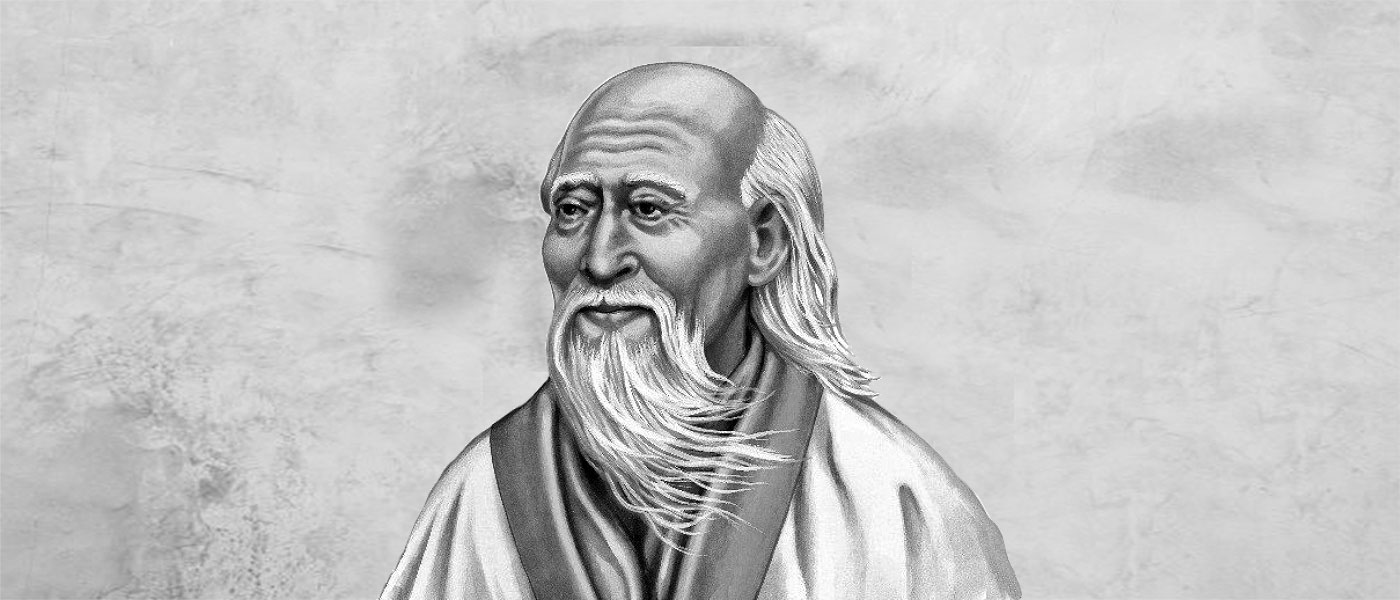To see no longer means to believe: The harms and benefits of deepfake

To see no longer means to believe: The harms and benefits of deepfake
Opinion + AnalysisRelationshipsScience + Technology
BY Mehhma Malhi 18 FEB 2022
The use of deepfake technology is increasing as more companies devise different models.
It is a form of technology where a user can upload an image and synthetically augment a video of a real person or create a picture of a fake person. Many people have raised concerns about the harmful possibilities of these technologies. Yet, the notion of deception that is at the core of this technology is not entirely new. History is filled with examples of fraud, identity theft, and counterfeit artworks, all of which are based on imitation or assuming a person’s likeliness.
In 1846, the oldest gallery in the US, The Knoedler, opened its doors. By supplying art to some of the most famous galleries and collectors worldwide, it gained recognition as a trusted source of expensive artwork – such as Rothko’s and Pollock’s. However, unlike many other galleries, The Knoedler allowed citizens to purchase the art pieces on display. Shockingly, in 2009, Ann Freedman, who had been appointed as the gallery director a decade prior, was famously prosecuted for knowingly selling fake artworks. After several buyers sought authentication and valuation of their purchases for insurance purposes, the forgeries came to light. The scandal was sensational, not only because of the sheer number of artworks involved in the deception that lasted years but also because millions of dollars were scammed from New York’s elite.
The grandiose art foundation of NYC fell as the gallery lost its credibility and eventually shut down. Despite being exact replicas and almost indistinguishable, the understanding of the artist and the meaning of the artworks were lost due to the lack of emotion and originality. As a result, all the artworks lost sentimental and monetary value.
Yet, this betrayal is not as immoral as stealing someone’s identity or engaging in fraud by forging someone’s signature. Unlike artwork, when someone’s identity is stolen, the person who has taken the identity has the power to define how the other person is perceived. For example, catfishing online allows a person to misrepresent not only themselves but also the person’s identity that they are using to catfish with. This is because they ascribe specific values and activities to a person’s being and change how they are represented online.
Similarly, deepfakes allow people to create entirely fictional personas or take the likeness of a person and distort how they represent themselves online. Online self-representations are already augmented to some degree by the person. For instance, most individuals on Instagram present a highly curated version of themselves that is tailored specifically to garner attention and draw particular opinions.
But, when that persona is out of the person’s control, it can spur rumours that become embedded as fact due to the nature of the internet. An example is that of celebrity tabloids. Celebrities’ love lives are continually speculated about, and often these rumours are spread and cemented until the celebrity comes out themselves to deny the claims. Even then, the story has, to some degree, impacted their reputation as those tabloids will not be removed from the internet.
The importance of a person maintaining control of their online image is paramount as it ensures their autonomy and ability to consent. When deepfakes are created of an existing person, it takes control of those tenets.
Before delving further into the ethical concerns, understanding how this technology is developed may shed light on some of the issues that arise from such a technology.
The technology is derived from deep learning, a type of artificial intelligence based on neural networks. Deep neural network technologies are often composed of layers based on input/output features. It is created using two sets of algorithms known as the generator and discriminator. The former creates fake content, and the latter must determine the authenticity of the materials. Each time it is correct, it feeds information back to the generator to improve the system. In short, if it determines whether the image is real correctly, the input receives a greater weighting. Together this process is known as generative adversarial network (GAN). It uses the process to recognise patterns which can then be compiled to make fake images.
With this type of model, if the discriminator is overly sensitive, it will provide no feedback to the generator to develop improvements. If the generator provides an image that is too realistic, the discriminator can get stuck in a loop. However, in addition to the technical difficulties, there are several serious ethical concerns that it gives rise to.
Firstly, there have been concerns regarding political safety and women’s safety. Deepfake technology has advanced to the extent that it can create multiple photos compiled into a video. At first, this seemed harmless as many early adopters began using this technology in 2019 to make videos of politicians and celebrities singing along to funny videos. However, this technology has also been used to create videos of politicians saying provocative things.
Unlike, photoshop and other editing apps that require a lot of skill or time to augment images, deepfake technology is much more straightforward as it is attuned to mimicking the person’s voice and actions. Coupling the precision of the technology to develop realistic images and the vast entity that we call the internet, these videos are at risk of entering echo chambers and epistemic bubbles where people may not know that these videos are fake. Therefore, one primary concern regarding deepfake videos is that they can be used to assert or consolidate dangerous thinking.
These tools could be used to edit photos or create videos that damage a person’s online reputation, and although they may be refuted or proved as not real, the images and effects will remain. Recently, countries such as the UK have been demanding the implementation of legislation that limits deepfake technology and violence against women. Specifically, there is a slew of apps that “nudify” any individual, and they have been used predominantly against women. All that is required of users is to upload an image of a person. One version of this website gained over 35 million hits over a few days. The use of deepfake in this manner creates non-consensual pornography that can be used to manipulate women. Because of this, the UK has called for stronger criminal laws for harassment and assault. As people’s main image continues to merge with technology, the importance of regulating these types of technology is paramount to protect individuals. Parameters are increasingly pertinent as people’s reality merges with the virtual world.
However, like with any piece of technology, there are also positive uses. For example, Deepfake technology can be used in medicine and education systems by creating learning tools and can also be used as an accessibility feature within technology. In particular, the technology can recreate persons in history and can be used in gaming and the arts. In more detail, the technology can be used to render fake patients whose data can be used in research. This protects patient information and autonomy while still providing researchers with relevant data. Further, deepfake tech has been used in marketing to help small businesses promote their products by partnering them with celebrities.
Deepfake technology was used by academics but popularised by online forums. Not used to benefit people initially, it was first used to visualise how certain celebrities would look in compromising positions. The actual benefits derived from deepfake technology were only conceptualised by different tech groups after the basis for the technology had been developed.
The conception of such technology often comes to fruition due to a developer’s will and, given the lack of regulation, is often implemented online.
While there are extensive benefits to such technology, there need to be stricter regulations, and people who abuse the scope of technology ought to be held accountable. As we see our present reality merge with virtual spaces, a person’s online presence will continue to grow in importance. Stronger regulations must be put into place to protect people’s online persona.
While users should be held accountable for manipulating and stripping away the autonomy of individuals by using their likeness, more specifically, developers must be held responsible for using their knowledge to develop an app using deepfake technology that actively harms.
To avoid a fallout like Knoedler, where distrust, skepticism, and hesitancy rooted itself in the art community, we must alert individuals when deepfake technology is employed; even in cases where the use is positive, be transparent that it has been used. Some websites teach users how to differentiate between real and fake, and some that process images to determine their validity.
Overall, this technology can help individuals gain agency; however, it can also limit another persons’ right to autonomy and privacy. This type of AI brings unique awareness to the need for balance in technology.
Ethics in your inbox.
Get the latest inspiration, intelligence, events & more.
By signing up you agree to our privacy policy
You might be interested in…
Opinion + Analysis
Science + Technology, Business + Leadership, Society + Culture
AI might pose a risk to humanity, but it could also transform it
Big thinker
Politics + Human Rights, Relationships
Big Thinker: Germaine Greer
Opinion + Analysis
Relationships
Social media is a moral trap
Opinion + Analysis
Business + Leadership, Climate + Environment, Relationships
ESG is not just about ticking boxes, it’s about earning the public’s trust
BY Mehhma Malhi
Mehhma recently graduated from NYU having majored in Philosophy and minoring in Politics, Bioethics, and Art. She is now continuing her study at Columbia University and pursuing a Masters of Science in Bioethics. She is interested in refocusing the news to discuss why and how people form their personal opinions.
The great resignation: Why quitting isn't a dirty word

The great resignation: Why quitting isn’t a dirty word
Opinion + AnalysisBusiness + Leadership
BY Jack Derwin 17 FEB 2022
More than 47 million Americans quit their jobs last year, a new record for the United States. While it is most obvious in North America, a form of ‘The Great Resignation’ phenomenon is showing up in Australia as well.
Recent surveys suggest that almost one in two Australian workers are currently looking to switch jobs, with more than one million people accepting new ones between September and November alone. That part matters, making the local trend more akin to a ‘Great Reshuffle’, in the words of Australia’s own Treasurer.
The fact is most people aren’t throwing off the shackles of capitalism and running from the workforce altogether. Rather an astounding number are simply searching for something better – and fast.
Workers are motivated to leave
The pandemic has understandably taken a toll. Exhausted frontline and public-facing workers have operated under heavy stress for two years. If they haven’t been locked down or quarantined then they have faced the genuine risk of contracting the virus. It’s no wonder then that the highest number of resignations have come from healthcare with retail not far behind. Meanwhile sectors like the arts have been quietly decimated.
Professionals fortunate enough to work from home have faced a different set of challenges, whether losing contact with colleagues or having the lines between their professional and personal lives blur.
Whether the pandemic led to burnout or gave workers time to reflect and reconsider their choices, much has changed since 2020. Whether they are fed up with the old or energised to start something new, the result is the same. They’re ready to move on.
It’s the economy, stupid
That’s not to say we lived in some kind of capitalist utopia before March 2020. Indeed since 2013, wages in Australia haven’t meaningfully grown across industries, placing increasing pressure on workers over the last decade to either demand or find their own pay rises.
Yet the record economic stimulus unleashed during the pandemic is changing that dynamic. Almost $300 billion in government spending helped expand the economy while JobKeeper and JobSeeker payments have kept households either in work or able to live without it.
Such was the level of support during the pandemic that overall Australians are actually, on average, better off now than they were before it to the point where we are collectively sitting on $260 billion in savings right now.
Meanwhile job openings are 45% higher now than they were pre-pandemic and unemployment has plummeted to its lowest level since 2008. Before that you’d have to go back to the 1970s to find anything comparable. Simply put, Australian workers are in hot demand at the same time they are in short supply.
This is an environment in which, for the first time in recent memory, workers have genuine bargaining power in their current role as well as when negotiating for their next one. As the recovery remains uneven, there’s certainly an incentive to jump from one industry to another with mid-career professionals currently the most likely to switch careers entirely.
But whether it’s asking for a raise, finding a new job or taking time out altogether, this period has largely been a coup for employees.
Don’t let guilt boss you around
Rather than celebrating or exploiting this new power dynamic, many feel uneasy however at the thought of demanding more, let alone quitting their job.
Economically speaking, this makes no sense. Resignations aren’t a sign of fickleness. Workers that can freely pursue their interests and abilities in a more productive way are instead part of a healthy and efficient economy.
‘The Great Reshuffle’ can be seen as much a consequence of an economy that wasn’t previously functioning as it is the emergence of meaningful choice for a workforce that has been long without it.
Yet despite these sound economic and personal rationales, there remains a stigma attached to separating from our workplaces and going our own way. The idea of quitting can conjure up feelings of guilt, failure and even betrayal despite what we may stand to gain from it.
This is perhaps inevitable. Our jobs absorb eight or more hours a day, or more time than most people spend with their loved ones. Whether or not we grumble about them, they are so embedded in our culture and language that we talk about our ‘work lives’ as if they were interchangeable with our ‘real lives’.
Then there is a certain dependence associated with work. Beyond simply a paycheck, a profession creates a sense of identity and purpose. Consider the refrain ‘I am a doctor/a hairdresser/a butcher’. We are our occupation, or, more specifically, we are our current job. Significantly, this desire for the personal value of work has only increased during the pandemic.
In combination these ties can bind. The responsibility of a role can naturally and subconsciously manifest as an unreasonable obligation to stay in one, no matter how uncomfortable, ill–suited or even toxic it may be.
All of these factors help to stoke a sense of loyalty that is impossible to ignore. The fact that our motivations for leaving are all our own, whether to pursue a raise, a promotion or some other desire, only amplifies this further as we inevitably place our own interests above those of our employer and colleagues.
As a consequence, a resignation can feel an awful lot like infidelity. Despite our acceptance into the tribe, it is ultimately our decision, and ours alone, to leave it behind.
Bite the bullet
Resignation however remains a valuable right and a vital avenue of self-empowerment and self-determination.
An autonomous individual has an obligation to themselves to pursue the opportunities that interest and suit them and to find work that is both fulfilling and sustainable, or to exit employment that is harmful or boring.
There is also nothing shameful about periods of unemployment should we demand or desire some time out of the workforce. There is fortunately a growing appreciation of our wellbeing as people beyond our status as workers.
Whereas once gaps in resumes may have been viewed as red flags for prospective employers, there is a deeper understanding of the challenges behind them, whether related to family obligations, mental and emotional health or the pursuit of study or other interests.
There are of course different ways to leave work.
How to quit ethically
First, reflect on what is driving your decision. Is it a boss that micromanages, substandard pay and conditions, an unfair workload or a lack of opportunities?
If it is a single issue in isolation, consider seriously whether there are any possible remedies. Sometimes a frank discussion with an employer or manager can drastically improve a situation but first they need to know what is wrong. Businesses, especially at the moment, are motivated to retain staff and often may simply be unaware of what they can do better.
If you’re certain that your employment has become untenable, then you can be comforted by the fact that there is no other solution and feel justified in your decision to depart.
To counter any ill feelings of guilt that may arise, we need to interrogate its source. Generally guilt is brought on by the knowledge that an action has or will harm someone else or be immoral. In the context of resigning, it’s helpful to zoom out and consider the real world ramifications.
This analysis should both appreciate the real benefits of leaving and recognise the often minor costs. For example, by changing roles you may be in a better position to find or accept fulfilling work, or a job that allows you the flexibility you need to lead a more contented life.
By leaving, your manager may have to recruit someone else to do your job. This may inconvenience them for a few hours but will the business collapse as a result? It’s highly unlikely. In fact, they may well find someone more fitting for the role. Resignations simply aren’t a zero-sum game.
Nor does your decision represent a moral transgression. We know that resignations are a natural feature of any workplace. Feelings to the contrary can be mitigated by instead focusing on resigning appropriately.
Again it’s helpful to articulate your reasons to yourself before sharing them with a manager. Plan out how you will do it rather than letting yourself crack under pressure. Practice how you might break the news to your workplace. Schedule a private meeting, talk through why you’re leaving respectfully and end on good terms.
If you’re worried about offending your boss, don’t be. It’s unhelpful and unnecessary to lie or deceive them in an attempt to mitigate guilt. Instead keep your head high. By voicing your concerns you may help improve the workplace for future staff on your way out.
Ultimately, if you’re ready to go then resigning is in everyone’s best interests. If your job isn’t working out for you, quit feeling conflicted and throw in the towel.
Ethics in your inbox.
Get the latest inspiration, intelligence, events & more.
By signing up you agree to our privacy policy
You might be interested in…
Opinion + Analysis
Business + Leadership
BFSO Young Ambassadors: Investing in our future leaders
Opinion + Analysis
Business + Leadership, Health + Wellbeing, Society + Culture
Corruption in sport: From the playing field to the field of ethics
Opinion + Analysis
Business + Leadership, Relationships
Can you incentivise ethical behaviour?
Opinion + Analysis
Business + Leadership
An ethical dilemma for accountants
BY Jack Derwin
Jack is a Sydney-based writer and journalist, specialising in business and economics. His reporting has appeared in the Sydney Morning Herald, the Australian Financial Review, Business Insider and the Asahi Shimbun among others.
Why morality must evolve

If you read the news or spend any time on social media, then you’d be forgiven for thinking that there’s a lack of morality in the world today.
There is certainly no shortage of serious social and moral problems in the world. People are discriminated against just because of the colour of their skin. Many women don’t feel safe in their own home or workplace. Over 450 million children around the world lack access to clean water. There are whole industries that cause untold suffering to animals. New technologies like artificial intelligence are being used to create autonomous weapons that might slip from our control. And people receive death threats simply for expressing themselves online.
It’s easy to think that if only morality featured more heavily in people’s thinking, then the world would be a better place. But I’m not convinced. This might sound strange coming from a moral philosopher, but I have come to believe that the problem we face isn’t a lack of morality, it’s that there’s often too much. Specifically, too much moral certainty.
The most dangerous people in the world are not those with weak moral views – they are those who have unwavering moral convictions. They are the ones who see the world in black and white, as if they are in a war between good and evil. They are ones who are willing to kill or die to bring about their vision of utopia.
That said, I’m not quite ready to give up on morality yet. It sits at the heart of ethics and guides how we decide on what is good and bad. It’s still central to how we live our lives. But it also has a dark side, particularly in its power to inspire rigid black and white thinking. And it’s not just the extremists who think this way. We are all susceptible to it.
To show you what I mean, let me ask you what will hopefully be an easy question:
Is it wrong to murder someone, just because you don’t like the look of their face?
I’m hoping you will say it is wrong, and I’m going to agree with you, but when we look at what we mean when we respond this way, it can help us understand how we think about right and wrong.
When we say that something like this is wrong, we’re usually not just stating a personal preference, like “I simply prefer not to murder people, but I don’t mind if you do so”. Typically, we’re saying that murder for such petty reasons is wrong for everyone, always.
Statements like these seem to be different from expressions of subjective opinion, like whether I prefer chocolate to strawberry ice cream. It seems like there’s something objective about the fact that it’s wrong to murder someone because you don’t like the look of their face. And if someone suggests that it’s just a subjective opinion – that allowing murder is a matter of personal taste – then we’re inclined to say that they’re just plain wrong. Should they defend their position, we might even be tempted to say they’re not only mistaken about some basic moral truth, but that they’re somehow morally corrupt because they cannot appreciate that truth.
Murdering someone because you don’t like the look of their face is just wrong. It’s black and white.
This view might be intuitively appealing, and it might be emotionally satisfying to feel as if we have moral truth on our side, but it has two fatal flaws. First, morality is not black and white, as I’ll explain below. Second, it stifles our ability to engage with views other than our own, which we are bound to do in a large and diverse world.
So instead of solutions, we get more conflict: left versus right, science versus anti-vaxxers, abortion versus a right to choose, free speech versus cancel culture. The list goes on.
Now, more than ever, we need to get away from this black and white thinking so we can engage with a complex moral landscape, and be flexible enough to adapt our moral views to solve the very real problems we face today.
The thing is, it’s not easy to change the way we think about morality. It turns out that it’s in our very nature to think about it in black and white terms.
As a philosopher, I’ve been fascinated by the story of where morality came from, and how we evolved from being a relatively anti-social species of ape a few million years ago to being the massively social species we are today.
Evolution plays a leading role in this story. It didn’t just shape our bodies, like giving us opposable thumbs and an upright stance. It also shaped our minds: it made us smarter, it gave us language, and it gave us psychological and social tools to help us live and cooperate together relatively peacefully. We evolved a greater capacity to feel empathy for others, to want to punish wrongdoers, and to create and follow behavioural rules that are set by our community. In short: we evolved to be moral creatures, and this is what has enabled our species to work together and spread to every corner of the globe.
But evolution often takes shortcuts. It often only makes things ‘good enough’ rather than optimising them. I mentioned we evolved an upright stance, but even that was not without cost. Just ask anyone over the age of 40 years about their knees or lower backs.
Evolution’s ‘good enough’ solution for how to make us be nice to each other tens of thousands of years ago was to appropriate the way we evolved to perceive the world. For example, when you look at a ripe strawberry, what do you see? I’m guessing that for most of you – namely if you are not colour blind – you see it as being red. And when you bite into it, what do you taste? I’m guessing that you experience it as being sweet.
However, this is just a trick that our mind plays on us. There really is no ‘redness’ or ‘sweetness’ built into the strawberry. A strawberry is just a bunch of chemicals arranged in a particular way. It is our eyes and our taste buds that interpret these chemicals as ‘red’ or ‘sweet’. And it is our minds that trick us into believing these are properties of the strawberry rather than something that came from us.
The Scottish philosopher David Hume called this “projectivism”, because we project our subjective experience onto the world, mistaking it for being an objective feature of the world.
We do this in all sorts of contexts, not just with morality. This can help explain why we sometimes mistake our subjective opinions for being objective facts. Consider debates you may have had around the merits of a particular artist or musician, or that vexed question of whether pineapple belongs on pizza. It can feel like someone who hates your favourite musician is failing to appreciate some inherently good property of their music. But, at the end of the day, we will probably acknowledge that our music tastes are subjective, and it’s us who are projecting the property of “awesomeness” onto the sounds of our favourite song.
It’s not that different with morality. As the American psychologist, Joshua Greene, puts it: “we see the world in moral colours”. We absorb the moral values of our community when we are young, and we internalise them to the point where we see the world through their lens.
As with colours, we project our sense of right and wrong onto the world so that it looks like it was there all along, and this makes it difficult for us to imagine that other people might see the world differently.
In studying the story of human physical, psychological and cultural evolution, I learnt something else. While this is how evolution shaped our minds to see right and wrong, it’s not how morality has actually developed. Even though we’re wired to see our particular version of morality as being built into the world, the moral rules that we live by are really a human invention. They’re not black and white, but come in many different shades of grey.
You can think of these rules as being a cultural tool kit that sits on top of our evolved social nature. These tools are something that our ancestors created to help them live and thrive together peacefully. They helped to solve many of the inevitable problems that emerge from living alongside one another, like how to stop bullies from exploiting the weak, or how to distribute food and other resources so everyone gets a fair share.
But, crucially, different societies had different problems to solve. Some societies were small and roamed across resource-starved areas surrounded by friendly bands. Their problems were very different from those of a settled society defending its farmlands from hostile raiders. And their problems differed even more from those of a massive post-industrial state with a highly diverse population. Each had their own set of challenges to solve, and each came up with different solutions to suit their circumstances.
Those solutions also changed and evolved as their societies did. As social, environmental, technological and economic circumstances changed, societies faced new problems, such as rising inequality, conflict between diverse cultural groups or how to prevent industry from damaging the environment. So they had to come up with new solutions.
For an example of moral evolution, consider how attitudes towards punishing wrongdoing have varied among different societies and changed over time. Let’s start with a small-scale hunter-gatherer society, like that of the !Kung, dwelling in the Kalahari desert a little over a century ago.
If one member of the band started pushing others around, perhaps turning to violence to get their way, there were no police or law courts to keep them in line. Instead, it was left to individuals to keep their own justice. That’s why if a bully murdered a family member, it was not only permitted, but it was a moral duty for the family to kill the murderer. Revenge – and the threat thereof – was an important and effective tool in the !Kung moral toolkit.
We can see that revenge also played a similar role in many moral systems around the world and throughout history. There are countless tales that demonstrate the ubiquity of revenge in great works like the Iliad, Mahabharata and Beowulf. In the Old Testament, God tells Moses the famous line that allows his people to take an eye for an eye and tooth for a tooth.
But as societies changed, as they expanded, as people started interacting with more strangers, it turned out that revenge caused more problems than it solved. While it could be managed and contained in small-scale societies like the !Kung, in larger societies it could lead to feuds where extended family groups might get stuck in a cycle of counter-retaliation for generations, all started by a one single regrettable event.
As societies changed, they created new moral tools to solve the new problems they faced, and they often discarded tools that no longer worked. That’s why the New Testament advises people to reject revenge and “turn the other cheek” instead.
Modern societies have the resources and institutions to outsource punishment to a specialised class of individuals in the form of police and law courts. When these institutions are well run and can be trusted, they have proven to be a highly effective means of keeping the peace to the point that revenge and vigilante justice is now frowned upon.
This is moral evolution. This is how different societies have adapted to new ways of living, solving the new social problems that emerge as their societies and circumstances change.
(I must stress that this does not make !Kung morality inferior or less evolved than other societies. Similar to how all creatures alive today are equally evolved, so too are all extant moral systems. My point is not that there is a linear progression from small-scale to large-scale societies, from primitive to civilised, it’s that any moral system needs to fit the circumstances that the society finds itself in and change as those circumstances change.)
But there’s a catch: moral evolution has typically moved painfully slowly, not least because our innate tendency towards black and white thinking has stifled moral innovation.
This wasn’t such a problem 10,000 years ago, when living conditions would have remained relatively static for generations. In this case, there was less pressure to evolve and adapt the moral toolkit. But the world today is not like this. It is changing faster than ever before, and so we are forced to adapt faster than our minds might be comfortable with.
This means pushing back on our black and white tendencies and looking at morality through a new lens. Instead of seeing it as something that is fixed, we can look at it as a toolkit that we adapt to the problems at hand.
It also means acknowledging that many of the social and moral problems we face today have no single perfect solution. Many come in shades of grey, like deciding if free speech should give people a right to offend, or to what extent we should tolerate intolerance, or under what circumstances we should allow people to end their own lives. There is almost certainly no single set of moral rules that will solve these problems in every circumstance without also causing undesirable consequences.
On the other hand, we should also acknowledge that there are many social and moral problems that have more than one good solution. Consider one of the questions that sits at the centre of ethics: what constitutes a good life? There are likely going to be many good answers to that question. This remains the case even if some answers come into conflict with others, such as one perspective stressing individual freedom while another stresses greater community and interpersonal obligations.
This full-spectrum evolutionary perspective on morality can also help explain why there is such a tremendous diversity of conflicting moral viewpoints in the world today. For a start, many cultures are still wielding tools that were made to solve problems from a different time, and they have carried them into today’s world, such as tools that prioritise in-group loyalty at the cost of suspicion of others. Some conservative cultures are reluctant to give these tools up, even if they are obsolete.
Other tools were never very good at their job, or they were co-opted by an elite for their own benefit to the detriment of others, such as tools that subjugated women or disenfranchised certain minorities.
Other tools are responses to different conceptions of the good life. Some represent the trade-off that is built into many moral problems. And there is constant production of new and experimental tools that have yet to be tested. Some will prove to work well and may be kept, while others will fall short, or cause more problems than they solve, and will be dropped.
One thing is clear: the world we are living in today is unlike anything our distant ancestors faced. It is larger, more complex, more diverse and more interconnected than it has ever been, and we are hearing from voices that once were silenced. The world is changing faster than ever before.
This might be taxing for our slow-moving black and white minds – and we should forgive ourselves and others for being human – but we must adapt our moral views to the world of today, and not rely on the old solutions of yesterday.
This calls for each of us to be mindful of how we think about morality, our black and white tendencies, and whether the views we inherited from our forebears are the best ones to solve the serious problems we face today. It also means we must rethink morality as being a human invention, a toolkit that can be adapted as the world changes, with many new problems and many tools that can solve them.
What matters today is not clinging to the moral views we were raised with, but looking at each problem, listening to each other, and working together to find the best solution. What we need now is genuine moral evolution.
Ethics in your inbox.
Get the latest inspiration, intelligence, events & more.
By signing up you agree to our privacy policy
You might be interested in…
Big thinker
Relationships
Big Thinkers: Laozi and Zhuangzi
Opinion + Analysis
Relationships
Parenting philosophy: Stop praising mediocrity
Opinion + Analysis
Relationships
How to help your kid flex their ethical muscle
Opinion + Analysis
Politics + Human Rights, Relationships, Science + Technology
Parent planning – we shouldn’t be allowed to choose our children’s sex
BY Dr Tim Dean
Dr Tim Dean is Philosopher in Residence at The Ethics Centre and author of How We Became Human: And Why We Need to Change.
Why businesses need to have difficult conversations

Why businesses need to have difficult conversations
Opinion + AnalysisBusiness + Leadership
BY The Ethics Alliance 8 FEB 2022
Let’s step back to examine the ethical foundation for conversation as seen by Socrates, who engaged in dialogue to converse.
This process involved asking and answering questions with the intent of sharing views in pursuit of a common goal towards a common good. This would then create a mutually accepted direction preventing any one person from pursuing a self-interested good.
Socrates felt these conversations allowed each to hold the other to account if what was presented was untrue. This process of back and forth questioning and answering draws on qualities of friendship, such as sharing, and allowing equal and fair time to respond, all while acknowledging the value and importance of each other’s points of view.
But what if you’re not friends? Or what if you feel your view should be prioritised? Conversations become essential when there is an urgency to resolve disagreements and there is a complex array of relationships with stakeholders who could be harmed or could benefit from the decisions that need to be made.
We are seeing this play out in all parts of society in attempts to address climate change.
There was a time in the 1900s when mining was crucial to the colony, with steamships, railways and steam mills playing a vital role in developing Australia’s economy. Today we recognise that past behaviour has and continues to contribute to the climate crisis.
Different organisations will be at different maturity stages in their path to a net zero future. There will be unintended consequences and changes in trajectories. To trust this process so that we can feel confident in addressing the trade-offs, we need to better understand it and be comfortable having these conversations.
What is missing that is preventing discussions from being focused on the ‘common good’?
Currently there is a stalemate at the Resolution Copper mine in Arizona between two Australian mining companies, BHP and Rio Tinto, and the Native American activist group, Apache Stronghold, claiming the land is sacred and shouldn’t be mined. The copper is needed to produce renewable energy and electric vehicles. 11 federally recognised tribes are part of the formal consultation process and they all have differing views around the project. At this stage conversation has failed and they are waiting on the law to determine next moves.
In 2023 a windfarm in Kaban, 49km south of Mt Emerald, QLD is due to start operations powering 96,000 homes. The project area includes 129 hectares of threatened species habitat and is home to greater gliders and the brood frog. The work done to date has come under heavy criticism from local conservation groups who see destroying the rich biodiversity as a means for greater wind energy as a complete oxymoron.
The issue is polarising for the general community, though, with some people seeing the project as a positive opportunity for employment and making the most out of a situation they feel they have no control over.
Others, like traditional owner Joyce Bean, broke down and cried after seeing the destruction caused to the land, saying “we didn’t have a say in it”. Traditional owners don’t have veto rights over projects on lands they claim native title on.
The acknowledgment of people’s dignity and worth is a principal element of a conversation. Has a lack of power or recognition eventuated in the local community being omitted from the conversation?
A TED Countdown Summit in Edinburgh was a platform for a difficult and at times emotional conversation on the trajectory of decarbonisation. The guests included Royal Dutch Shell’s global CEO, Ben van Beurden; Chris James, founder of the activist fund Engine No. 1; and Lauren MacDonald, a Scottish climate activist. The platform was formatted in such a way that each speaker was asked to present their position in addressing decarbonisation and the other two could ask a question of them which would then be answered – much like the Socratic method of enquiry.
The conversation broke down when MacDonald passionately presented a statement and question to van Beurden but was unable to stay sharing the stage to hear the answer with the person she felt was responsible for a crisis situation in Scotland. The organisation had lost legitimacy in her eyes. The result was no conversation.
Greg Joiner, VP Renewables and Energy solutions at Shell, recognises how difficult it is to turn people’s views when trying to explain Shell’s corporate strategy to reach net zero by 2050. He explains that playing a significant role in transitioning the energy sector ‘is not linear, it’s dynamic and iterative and there are unintended consequences”. He says that often models need to be redesigned creating discontinuities which are challenging for everyone and leave an organisation open to greenwashing accusations.
Does this suggest the best way forward is to not have conversations but rather do the work, meet the targets and let the results speak for themselves?
What is the benefit of conversation? As much as the exchange of ideas and thoughts is important, the ability to listen may be more so. In conversations we learn about people’s values and principles and emotional investment. We also gain insight into how others interpret and evaluate our ideas. All of this helps to develop empathy and think of new ways to approach a complex situation.
If we want to embed ethics into our business and decision-making, we need to continuously encourage conversations that monitor the circumstances and be willing to change our minds.
Trying to change people’s views or omit them from the discussion hinders or prevents the conversation. As humans we are fallible and opening ourselves up to different perspectives, even those we disagree with, creates new possibilities. If we want to protect ourselves, the animals and biodiverse planet we live on, we need to have conversations.
A Socratic discussion shows that how we communicate is often more important than what we say. We don’t need to be friends, but if we start conversations from a place of curiosity and respect, sharing and providing equal opportunity for reciprocity, then the conversation can remain mutually supportive, and we can successfully pursue a ‘common good’.

This article was originally written for The Ethics Alliance. Find out more about this corporate membership program. Already a member? Log in to the membership portal for more content and tools here.
Ethics in your inbox.
Get the latest inspiration, intelligence, events & more.
By signing up you agree to our privacy policy
You might be interested in…
Opinion + Analysis
Business + Leadership, Health + Wellbeing
Your donation is only as good as the charity you give it to
Opinion + Analysis
Business + Leadership, Relationships
There’s no good reason to keep women off the front lines
Opinion + Analysis
Business + Leadership
How to build a successful culture
Opinion + Analysis
Business + Leadership, Society + Culture
The Ethics Institute: Helping Australia realise its full potential
BY The Ethics Alliance
The Ethics Alliance is a community of organisations sharing insights and learning together, to find a better way of doing business. The Alliance is an initiative of The Ethics Centre.
Why we should be teaching our kids to protest

Why we should be teaching our kids to protest
Opinion + AnalysisPolitics + Human RightsRelationships
BY Dr Luke Zaphir 3 FEB 2022
When the Prime Minister says classrooms shouldn’t be political and students should stay in school, that’s an implicit argument about what kinds of citizen he thinks we should have.
It’s not unreasonable. The type of citizen who has not gone out to protest will have certain habits and dispositions that are desirable. Hard-working, diligent, focused. However, the question about what it means to be a citizen and how to become one is complicated and not one that any one person has the truth about.
Let’s go back to basics though. What’s the point of education? It’s to prepare children for life. Many would claim it’s to get children ready for work, but if that was the case we would put them in training facilities rather than schools. Our education systems have many tasks – to make children work ready to be sure, but also to develop their personhood, to allow them to engage in society, to help them flourish. Every part of the curriculum, from its General Capabilities of critical and creative thinking to the discipline specific like technologies, is designed to provide young people with the skills, knowledge and dispositions necessary for being 21st century citizens.
What many don’t realise is that learning what it means to be a citizen isn’t localised to the curriculum. Interactions with parents, teachers, with each other, with news and social media – all of these contribute to the definition of a citizen.
Every time a politician says that children should be seen and not heard, that’s an indication of the type of citizen they want.
Most politicians don’t want kids out protesting after all – not only is it disruptive to whatever is in school that day, it looks really bad on the news for them. Protests are bad news for politicians in general and if children are involved, there’s no good way to spin it.
But we do want children to learn how to protest. We want them to be able to see corruption and have discussions and heated debates and embrace complexity. Everyone should have the ability to say their piece and be heard in a democracy. This is something that we’ve already recognised as persuasion is a major part of education and has been for years.
However, when we talk about this, we need to recognise that we aren’t just talking about skills or knowledge. This isn’t putting together a pithy response or clever tweet. It’s about being capable of contributing to public discourse, and for that, we need children to hold certain intellectual virtues and values.
An intellectual virtue refers to the way we approach inquiry. An intellectually virtuous citizen is someone who approaches problems and perspectives with open-mindedness, curiosity, honesty and resilience; they wish to know more about it and are truth seeking, unafraid of what terrors lie in it.
If virtues are about the willingness to engage in inquiry, intellectual values are the cognitive tools needed to do so effectively. It’s essential in conversation to be able to speak with coherence; an argument that doesn’t meaningfully connect ideas is one that is confusing at best, and manipulative at worst. If we’re not able to share our thoughts and display them clearly, we’re just shouting at each other.
Values and virtues are difficult to teach though. You can’t hold up flash cards and point to “fallibility” and say “okay, now remember that you can always be wrong”. We have cognitive biases that stand between us and accepting a virtue like “resilience to our own fallibility” – it feels bad to be wrong. The way we learn these habits of mind is through practice, through acceptance and agreement. Teachers, parents and adults can all develop these habits explicitly through classroom activities, and implicitly by modelling these behaviours themselves.
If a student can share their ideas without fear of being shut down by authority, they’ll develop greater clarity and coherence. They’ll be more open-minded about the ideas of others knowing they don’t have to defensively guard their beliefs.
To the original question of what it means to be a good citizen in a global context: we want our children to develop into conscientious adults. A good citizen is able to communicate their ideas and perspectives, and listen to the same from others. A good citizen can discern policy from platitude, and dilemmas from demagoguery.
But it takes practice and time. It takes new challenges and new contexts and new ideas to train these habits. We don’t have to teach students the logistics of organising a revolution or how to get elected.
And if we’re not teaching them when or why they should protest, we’re not teaching them to be good citizens at all.
Ethics in your inbox.
Get the latest inspiration, intelligence, events & more.
By signing up you agree to our privacy policy
You might be interested in…
Opinion + Analysis
Relationships
Uncivil attention: The antidote to loneliness
Explainer
Relationships
Ethics Explainer: Authenticity
Opinion + Analysis
Health + Wellbeing, Relationships
This isn’t home schooling, it’s crisis schooling
Opinion + Analysis
Society + Culture, Relationships
Where is the emotionally sensitive art for young men?
BY Dr Luke Zaphir
Luke is a researcher for the University of Queensland's Critical Thinking Project. He completed a PhD in philosophy in 2017, writing about non-electoral alternatives to democracy. Democracy without elections is a difficult goal to achieve though, requiring a much greater level of education from citizens and more deliberate forms of engagement. Thus he's also a practicing high school teacher in Queensland, where he teaches critical thinking and philosophy.
Is the right to die about rights or consequences?

Is the right to die about rights or consequences?
Opinion + AnalysisPolitics + Human Rights
BY Joshua Pearl 31 JAN 2022
Of all public policy debates, voluntary assisted dying is an ethical debate as much as any other, made clear by the recent impassioned speeches on the floor of the New South Wales parliament and the accompanying public debate.
The various arguments for and against voluntary assisted dying are motivated by a range of different reasons. For some it’s by personal experiences and time spent with dying loved ones. For others it’s by views on human dignity – reasons that are used both for and against. Many arguments are motivated instead by a deep belief in the existence of God, and what this means for how we treat others.
While there may be no “best way” to consider and assess the case for and against voluntary-assisted-dying, it seems to me that a useful approach is to focus on two central ethical issues:
- The level of rights an individual has over their body
- Whether legalised voluntary assisted dying makes a society worse-off due to the negative consequences that may ensue, such as increased self-harm in the broader population or individuals being pressured to prematurely end their lives.
The rights case for voluntary assisted dying largely centres on an individual’s self-ownership rights – what they are permitted to do with their bodies. These rights do not rest on any consequential benefits that might arise, such as a more cohesive society or a happier public, but are natural rights, without further need of justification.
If people have self-ownership rights in a strong sense – for example, they can do as they please with their bodies, free from any external government interference – then it seems the proposed NSW voluntary assisted dying bill does not go far enough.
Patients must have a condition that is advanced, progressive and will cause death within six months (or 12 months for a neurodegenerative disease). This timeframe appears unfair because it means patients with higher levels of pain who are further from the relief of death will suffer more, for longer. If anything, a person experiencing a higher level of pain has a greater need for voluntary assisted dying. If we regard incurable psychological suffering as an affliction comparable with physical suffering (a possibility it seems we do take seriously as a society), failing to provide relief for this cohort seems if not unfair, then at least inconsistent.
However, our existing social norms suggest self-ownership rights are not inviolable. We are not allowed to sell our organs, even if to save another person’s life (we can donate them). We are not allowed to sell ourselves into slavery, even if this could raise vital funds our families or children need to lead better lives.
When we impose risks that are great enough, either to ourselves or others, we are restricted from doing things as menial as leaving home after dark, as was the case in parts of south-west Sydney during the COVID-19 lockdowns. Sometimes these restrictions are publicly justified on the basis of being good for the individual (paternalistic reasons), and other times on the basis of being good for society (what economists might call “externality” reasons).
With regard to consequences, from an individual’s perspective, it seems reasonable to suggest that a condition can be so severe, so acute, that life is not worth living. Our existing medical practices align with this view. It is permissible in NSW for doctors to withdraw life-saving treatment at the request of patients and doctors are under no obligation to provide medical treatment when treatment is considered futile. While there is a difference between killing and letting die, this practice suggests it is possible for the benefits of death to outweigh the costs of life.
Therefore, from a consequentialist perspective, it seems to me the primary issue of concern is whether voluntary assisted dying makes society worse. One argument made is that voluntary assisted dying can increase suicides in the general population and pressure vulnerable people to prematurely end their lives. It seems reasonable to accept this is possible and reasonable to accept that we cannot know with full certainty how legalising voluntary assisted dying will impact NSW.
The primary issue of concern is whether voluntary assisted dying makes society worse.
However, these consequential considerations can be informed by looking at the experience of other jurisdictions. Voluntary assisted dying has been legal in the US states of Oregon, Washington and Vermont since 1997, 2009, and 2013 respectively; legal in the Netherlands and Belgium since 2002; and legal in Switzerland since 1918.
Given both sides of the debate argue the evidence is in favour of their own argument, a useful exercise is for the government to commission an independent non-partisan group of experts to analyse the existing data and academic literature, and publicly report back. This would help inform members of NSW Legislative Council when they consider amendments and vote on voluntary-assisted-dying legislation in 2022.
The non-partisan group would analyse how laws have been introduced in other jurisdictions and how these laws have changed over time. The group would ideally look for evidence of whether voluntary assisted dying has increased general population suicides or self-harm, or pressured individuals to prematurely end their lives. They might even consider whether voluntary assisted dying legalisation has numbed or lessened the community spirit, or negatively (or positively) changed the way a community treats and thinks about death.
An independent non-partisan report would provide a greater understanding of the trade-off between individual rights and social consequences. Should it be the case there is near zero risk of negative social consequences, then the case for voluntary assisted dying would seem unassailable. But if there is a risk of increased general population self-harm (for example), the decision then centres on a threshold issue of what level of risk and what level of social impact we are willing to accept.
We might be willing to accept one additional event of self-harm or we might be willing to accept one hundred. We might even be willing to accept that an individual’s rights over their bodies are so strong that patients in agonising pain have a right to voluntary assisted dying, regardless of the social consequences that might result. That is, we might conclude that individual rights trump social consequences.
Should the voluntary assisted dying bill become law, the NSW experience may differ from other jurisdictions due to a range of policy or cultural reasons, which is why it seems an oversight the proposed bill does not require more in the way of future data collection and future reviews (something that could be undertaken by the proposed Voluntary Assisted Dying Board). This amendment would aid future debates (should the bill be passed by the NSW Legislative Council) on whether voluntary assisted dying should be expanded, amended, or even repealed.
It seems to me, the proposed voluntary assisted dying bill permits too little where rights are concerned by setting too strict a timeframe on nearness to death, and permits too much where consequences are concerned by not adequately taking into account the potential for negative social consequences.
The proposed bill and the ethical debate would be improved by considering ways to treat individuals consistently and fairly, by the government commissioning an independent non-partisan group to publicly report back before the NSW Legislative Council votes on the voluntary assisted dying bill, and by amending the proposed bill to require greater data collection and mandate future reviews.
These measures would enhance our understanding of individual rights and social consequences and enable our politicians to vote with their conscience alongside the relevant facts.
Ethics in your inbox.
Get the latest inspiration, intelligence, events & more.
By signing up you agree to our privacy policy
You might be interested in…
Opinion + Analysis
Politics + Human Rights, Society + Culture
Why sometimes the right thing to do is nothing at all
Big thinker
Politics + Human Rights, Relationships
Big Thinker: Aristotle
Opinion + Analysis
Politics + Human Rights
Ethics Explainer: Testimonial Injustice
Opinion + Analysis
Climate + Environment, Politics + Human Rights
Are we prepared for climate change and the next migrant crisis?
BY Joshua Pearl
Joshua Pearl is the head of Energy Transition at Iberdrola Australia. Josh has previously worked in government and political and corporate advisory. Josh studied economics and finance at the University of New South Wales and philosophy and economics at the London School of Economics.
The tyranny of righteous indignation

“It would be better to live under robber barons than under omnipotent moral busybodies. The robber baron’s cruelty may sometimes sleep, his cupidity may at some point be satiated; but those who torment us for our own good will torment us without end for they do so with the approval of their own conscience. They may be more likely to go to Heaven yet at the same time likelier to make a Hell of earth.”
I have been reflecting on this quotation from C.S. Lewis. It seems to contain a warning for our time, when people are inclined to gorge themselves on the nectar of “righteous indignation”. Intoxicated with the sensation of apparent virtue, the “righteous” then set upon anyone who falls beyond their moral pale.
Indignation has no natural political or ideological home. It can be found in equal measure among so-called “progressives” and “conservatives”. Each group has its own ranks of “shock troops” ready to do the most terrible things in the firm belief that they are justified by the rightness of their cause. They are like the sans-culottes of the French Revolution or the Nazi “Brown Shirts” of the last century — convinced that callous indifference should rule the fate of those whom they bully until their targets either retreat or break. Any sense of common decency, based in a recognition of a common humanity, is dissolved in the acid of resentment.
Fortunately, in Australia, righteous indignation rarely gives rise to violence on the streets. Instead, it is enacted, for the most part, in an online environment made all the more vicious by the fact that one can cause harm at a distance (and often cloaked in anonymity) without ever having to confront the awful reality of what is done.
My colleague, Tim Dean, has written about the ethics of outrage, which touches on a number of the matters that I point to above. My intention, here, is to look at a particular philosophical problem with righteous indignation — namely, its tendency to destroy (rather than express) a capacity for virtue. This is not simply a matter of philosophical interest.
The implications of this argument also have practical implications, especially for those who are truly committed to changing the world for the better.
In my experience, most of those who ultimately embrace the excesses of righteous indignation start from an entirely reasonable and defensible position. This is typically grounded in some form of ethical insight — usually relating to a genuine instance of wrong-doing, often involving the oppression of one group of people by another. For example, the ancien régime swept away by the French Revolution was corrupt. The Black Lives Matter (BLM) movement begins with a true insight that some lives (black lives) are being discounted as if they do not matter either at all or as much as the lives of others. Which is to say, BLM is based on valuing all lives. And so it is with most movements: they begin with a genuine and justifiable grievance, which risks being converted into something far less subtle and far more dangerous.
Robespierre undermined the integrity of the French Revolution by harnessing “The Terror” in service of his ideal — the creation of a “Republic of Virtue”. He unleashed the mob to ravage those who differed from them even to the slightest degree of privilege. To be “privileged” was to be doomed — as Robespierre himself discovered when the mob eventually turned on him and despatched him to the guillotine.
Unfortunately, every movement has its “Robespierres”. They amplify the general sense of there being a wrong that needs to be righted. They exploit the sentiments of those with a sincere desire to do good in the world. They fashion an “index of commitment” where you are judged by the extremity of your action — the more extreme, the more committed you are shown to be. Excess of zeal becomes a badge of merit, a token of sincerity.
So, what might this have to do with I’ve called the destruction of virtue? The answer lies in the implications of “excess”. For Aristotle, the phrōnimos (the person of practical wisdom, or phrōnēsis) attains virtue when they rid themselves of the distorting lenses of vice so as to see (and act according to) the “golden mean” — a point between two vicious extremes. For example, the virtue of courage lies between the poles of “reckless indifference to the risk of harm” at one end and “hiding away from danger” at the other. That is, a courageous person has a clear appreciation of danger and takes a measured decision to overcome their fear and stand fast all the same.
Righteous indignation disavows the golden mean. Instead, it creates a counterfeit version of virtue in which the extreme is presented as the ideal.
This distortion leads otherwise good people, with good motives, in the service of a good cause, to do abominable things.
Worse still, those who act abominably are encouraged to think that their conduct is excused because done “in good conscience”. Yet another counterfeit.
It is easy enough to justify all manner of wrongdoing by an appeal to “conscience”. That is why one of the greatest exponents of conscience, St. Thomas Aquinas, insisted that we are only bound to act in conformance with a “well-informed conscience” — and as my friend Father Frank Brennan, SJ, would add, a “well-formed conscience”.
I think it sad to see so many people being sucked into a world of “righteous indignation” that has little, if any, relationship to a conscientious life of virtue. People of virtue exercise ethical restraint. They are not wantonly cruel. They do not index the intrinsic dignity of persons according to the colour of their skin, their culture and beliefs, their sex and gender or their socio-economic status. They know that “two wrongs do not make a right”.
Instead of tormenting others for their own good — and, perhaps, for the good of the world — the virtuous will seek to engage and persuade, exemplifying (rather than subverting) the ideals they seek to promote. If ever there is to be a “Republic of Virtue”, it will have no place for the righteously indignant.
This article originally appeared on ABC Religion & Ethics.
Ethics in your inbox.
Get the latest inspiration, intelligence, events & more.
By signing up you agree to our privacy policy
You might be interested in…
Opinion + Analysis
Relationships, Society + Culture
Bring back the anti-hero: The strange case of depiction and endorsement
Opinion + Analysis
Relationships, Climate + Environment
Blindness and seeing
Opinion + Analysis
Relationships
Stopping domestic violence means rethinking masculinity
Opinion + Analysis
Health + Wellbeing, Relationships
The etiquette of gift giving
BY Simon Longstaff
Simon Longstaff began his working life on Groote Eylandt in the Northern Territory of Australia. He is proud of his kinship ties to the Anindilyakwa people. After a period studying law in Sydney and teaching in Tasmania, he pursued postgraduate studies as a Member of Magdalene College, Cambridge. In 1991, Simon commenced his work as the first Executive Director of The Ethics Centre. In 2013, he was made an officer of the Order of Australia (AO) for “distinguished service to the community through the promotion of ethical standards in governance and business, to improving corporate responsibility, and to philosophy.” Simon is an Adjunct Professor of the Australian Graduate School of Management at UNSW, a Fellow of CPA Australia, the Royal Society of NSW and the Australian Risk Policy Institute.
Can there be culture without contact?

Can there be culture without contact?
Opinion + AnalysisBusiness + Leadership
BY The Ethics Alliance 24 JAN 2022
COVID-19 has stripped offices everywhere of employees and disrupted and transformed workplace culture. Fiona Smith investigates if office conduct has suffered a COVID fall-out.
Human Resource executives all across Australia share one burning question: How can their companies lure employees back into the office?
In little more than 14 months, COVID-19 has overturned decades of corporate culture – one in which employees sat at their desks during work hours, communed in canteens and coffee shops and partied in pubs and wine bars before taking part in the traditional commute. Some thought the end of lockdown would bring them flocking back to the cities.
Instead, working from home has spawned a new world of options, brought families closer together, made life partners work partners and sparked the redesigning of our homes to permanently include everything needed to telecommute.
It’s a subject that’s dominating headlines and research reports, and the results of The Ethics Alliance Business Pulse confirm it – employees and leaders alike now place a high value on flexibility. Sixty-three per cent of survey respondents say they prefer a hybrid model that blends the benefits of working from home and face-to-face time.
41% of Australians with a job work from home at least once a week
16% of people working remotely say they struggling with loneliness
14% of global employees say they work for an organisation with a strong ethical culture
77% of people say that being able to work from home post-COVID-19 would make them happier
(2021 data from ABS, Buffer State of Remote Work survey, Ethics and Compliance Initiative, and Owl Labs)
The survey finding subverts the idea that executive teams are in favour of employees returning to the office over any other workplace model. Seventy-seven per cent of respondents hold senior roles from managerial to board director positions and only 14 per cent can be considered to be ‘workers’.
At stake is more than just the use of real estate – it’s how organisations can continue to provide a satisfying workplace for their employees and how they can lay the foundation for future success. Many believe workplace culture – the neurodiversity effect of being among many of different abilities and opinions – is an essential driving force that creates new initiatives, gives projects their impetus and is the petri dish of business ideas. Others say new management techniques are needed to respond to a pandemic generational change.
New management techniques are needed to respond to a pandemic generational change.
Business leaders are coming to terms with the fact that a sizeable proportion of their workforces now comprise ‘COVID hires’ – people recruited in the past 18 months who haven’t set foot in the office.
Consultancy firm and The Ethics Alliance member Accenture is a case in point. The firm replenishes its ranks by hiring 100,000 people worldwide every year, a number that amounts to almost 20 per cent of its total workforce. That’s a lot of people to integrate into a workplace culture over 12 months – especially when done remotely and in a time of crisis.
Each new hire is screened for their ‘cultural fit’ and receives an induction into Accenture’s workplace systems, as well as its code of conduct.
This onboarding process gets staff ready to work and aims to ensure that they undertake their work at Accenture in the right way. When workplace culture is designed around contact, how can it be maintained when 20 per cent of the workplace have never been face-to-face with their new colleagues? And does it matter?
“The only cultural reference framework for employees is a conversation over these virtual meetings.They do the training, but they don’t see it in action.”
Bob Easton, Chairman of Accenture Australia & New Zealand, says people are slowly coming back to the office in Australia, but there are still many new Accenture employees around the world who have never met a colleague or client face-to-face.
“The only cultural reference framework for them is a conversation over these virtual meetings,” he says. “They do the training, but they don’t see it in action.”
Leaders question whether it is possible to embed an organisational culture when people can’t meet face-to-face. Before and after physical meetings, employees engage in small talk that can help promote a sense of communal belonging. When Zoom meetings end, the screen goes dark.
Dr Marc Stigter, Associate Director at Melbourne Business School, says managers are warning that the pandemic has created a ‘pressure cooker’, particularly for top managers and middle managers who are dealing with isolation, ‘Zoom fatigue’ and job insecurity.
“They have many kinds of challenges, but they still need to mobilise their teams and take those people with them,” says Dr Stigter, an international strategist who recently completed research for the Australian Human Resources Institute on the impact of the pandemic. “The workforce, in general, is under pressure to demonstrate value all the time,” he says.
Elisabeth Shaw, CEO of Relationships Australia NSW, believes companies now have two workplace cultures. There’s one group of employees who know each other well from working in the office and can draw on their past work stories and continue to create certain rituals, like sharing Friday night drinks in person or on Zoom. And another group who only know each other online. As they have never met physically, they will have to draw on their virtual relationship and Zoom meetings to build a bank of group memories.
One way of bridging the two work cultures is to have a buddy from each group looking after and creating cultural learnings and rituals to hold the group together. She believes the days of working full-time in the office may well be over as more employees opt to work part-time in the office and the rest at home. Increasingly, employers will have to manage a hybrid work model and create a more flexible work culture.
“The pandemic lockdown which forced employees to work from home, has broken all the old rules,” she says. “The hybrid model of working part-time in the office and part-time at home is going to be more important. It has also benefited more people than expected as many employees do not feel torn or stressed, as they can have a better work-life balance. They can now pick up their kids from school as they are not spending so much time travelling to and from work.
“This will mean a more diverse workplace where employers will be able to employ interstate workers or people working remotely from the country region which they previously would not have considered.”
A hybrid model “will mean a more diverse workplace where employers will be able to employ interstate workers or people working remotely”.
Shaw, who is a clinical and counselling psychologist, also suggested the hybrid model may lead to more business savings as employers can downsize their office space and rent large conference rooms when staff are required to attend whole day seminars or meetings.
However, employers will have to build certain business rules so that staff do not take undue advantage of flexible working hours. “We will have to navigate the needs of our customers, employers and employees as we move to a more flexible workplace,” she said.
However, she admitted that a flexible workplace is not the ‘Holy Grail’ for everybody. Some people still prefer face-to-face meetings, especially when they have to discuss a difficult workplace situation. “For online workers, it is not easy to navigate and read the signs that some people are not connected,” she said.
The office as ‘honeypot’
Domino Risch, workplace designer and Principal at design studio Hassell, says it’s possible to create a cohesive workplace even while adopting a hybrid work-from-home/work-from-office model. She says an appealing workplace can renew workplace culture on those days that employees are back in the office.
Risch says workplaces need to become more like ‘collective clubhouses’ if they are to create the sense of belonging that humans have developed over millions of years as social, group-based creatures who almost always work better together than alone.
Aside from creating workplaces that have been designed with human wellbeing in mind – that cater to our biophilia (our tendency to seek connections with nature and other forms of life) and our need for sensory diversity – they also need to deal in intangibles that create a more human-centric environment.
“What we’ve all missed from working from home is not our office or desk chair,” says Risch. Surveys around the world have found “people have missed people. They’ve missed contact, incidental conversation, debriefs on the way out of a meeting, overheard conversations in corridors and the opportunity to talk to people without it needing to be scheduled or online.”
Surveys around the world have found “people have missed people”.
She says these findings give us a clue as to how workplaces need to shift in terms of their fundamental purpose. Attracting people back into the office means creating spaces for collaboration, co-creation, synchronous thinking and shared storytelling. It’s only the very best design firms that can take a client’s strategic aspiration and intent, and use them to create a humanistic design solution, she adds.
The alternative to the collective idea, says Risch, are “factories of individual productivity”. These are offices that are simply a property and accommodation tool, and which lack all the requisite human aspects of good workplace design.
“Many of the organisations we work for ask us to think about ways to test, experiment, plan for and strategise exactly what the ‘collective clubhouse’ idea means for them,” she says.
“It’s super important to note though, that there is no magic wand. There is no one-size-fits-all solution – every organisation is different, with different values, culture, leadership and capability (and appetite!) for change.”
One thing’s for certain, Risch says, “fifteen months of a pandemic is never going to reverse the desire we have for belonging and contact – if anything it’s stronger now than ever before”.
Reflection from John Neil, Director of Innovation, The Ethics Centre
The idea that employees should return to the office represents a watershed – our response to immediate post-COVID challenges will set a course for what the future of work itself will look like.
Leaders can start by embracing the opportunity to reimagine what a creative, adaptable and human-centred working world can look like. They should be mindful of the powerful sunk cost biases and status quo at play. Our formative ways of working during COVID helped to dispel many of these, such as the belief that productivity is tethered to surveillance and control and that trust between employees and their employees can only be maintained when sharing the same four walls.
Culture is a manifestation of the physical environment and human relationships. Regardless of the relative configuration of office versus remote hours, the ability to be adaptive and responsive, to innovate and effectively deliver value, is closely correlated to culture – and particularly to levels of psychological safety.
Leaders therefore can have the biggest immediate impact in responding to their post-COVID challenges by doing three things:
• Be consultative – seek input from their teams on issues that directly affect them
• Be supportive – show empathy and concern for their people as individuals, not simply as employees
• Be challenging – invite their teams to think differently by re-examining assumptions about their work and how they can best fulfil their potential.
This article was published as part of Matrix Magazine, an initiative of The Ethics Alliance.
Ethics in your inbox.
Get the latest inspiration, intelligence, events & more.
By signing up you agree to our privacy policy
You might be interested in…
Opinion + Analysis
Business + Leadership
Market logic can’t survive a pandemic
Explainer, READ
Business + Leadership
Ethics Explainer: Moral hazards
Opinion + Analysis
Business + Leadership
Does Australian politics need more than just female quotas?
Opinion + Analysis
Business + Leadership
Activist CEO’s. Is it any of your business?
BY The Ethics Alliance
The Ethics Alliance is a community of organisations sharing insights and learning together, to find a better way of doing business. The Alliance is an initiative of The Ethics Centre.
Freedom and disagreement: How we move forward

Freedom and disagreement: How we move forward
Opinion + AnalysisRelationships
BY Georgia Fagan 17 JAN 2022
As it stands, the term “freedom” is being utilised as though it means the same thing across a variety of communities.
In the absence of a commitment to expand discourse between disagreeing parties, we may regrettably find ourselves occupying an increasingly polarised society, stricken with groups which take communication with one another as being a definitively hopeless exercise.
Freedom and its nuances have come poignantly into focus over the past two and a half years. Ongoing deliberation about pandemic rules and regulations have seen the notion being employed in myriad ways.
For some, freedom, and one’s right to it, has meant demanding that particular methods of curtailing viral spread remain optional and never be mandated. For others, the freedom to retain access to secure healthcare systems and avoid acquiring illness has meant calling for preventative methods to be enforced, heavily monitored, and in some cases made mandatory. Across most perspectives, individual freedoms are taken as having been directly impacted to degrees not previously experienced.
The concept of freedom, for better or worse, reliably takes centre stage in much political debate. The ways we conceive of it and deliberate on it impacts our evaluation of governmental action. It appears however that the term often comes into conflict with itself, forming what may be characterised as a linguistic impasse, where one usage of freedom is evidently incompatible with another.
Canonical political philosopher Hannah Arendt addresses the largely elusive (albeit valorised) term in her paper, ‘What is Freedom?’. In it, she emphasises its inherent confusion: “…it becomes as impossible to conceive of freedom or its opposite as it is to realize the notion of a square circle.” Despite the linguistic and conceptual red flags which freedom bears, Arendt, and many others, persist in grappling with the topic in their work.
I am also sympathetic to the commitment to ongoing deliberation on the matter of freedom. Devoting time to understanding visible impasses which arise in its usage appears vital. Doing so aids in encouraging productive discussions on matters of how states should act, and to what extent a populace should comply with political directives.
As these are discussions central to the maintenance and progression of liberal democratic societies, we should feel motivated to formulate responses in situations where one conception of freedom comes into conflict with another.
The seemingly inevitable inaccuracies embedded within the concept of freedom and the difficulties inherent in the project of discriminating between the emancipatory and the oppressive remains evident across recent political rhetoric and subsequent public response. From 2020, many politicians began using the term freedom to emphasise the need to make present sacrifice for future gain, and to secure safety for vulnerable populations by curtailing the spread of COVID-19. For some, this placed politicians in the camp of the emancipators, working to defend our freedom against a looming viral force. In contrast, those who opposed measures such as lockdowns took the relevant enforcers to be oppressors, acting in total opposition to a treasured freedom of movement and individuated determination.
Both those in favour of and those opposed to lockdowns were seen utilising the term freedom in the public arena, yet freedom to the former necessarily required a certain degree of political intervention, and freedom to the latter firmly required a sovereignty from political reach. This self-oriented sovereignty is one in which freedom is experienced not in our relation to others, but individualistically, through the deployment of free will and a safety from political non-interference. While these two differing utilisations of freedom are broad and not immutable, they do provide a useful starting point from which to assess contemporary impasses.
Commitment to sovereignty as necessary for a commitment to freedom is not a new position, nor is it reliably misplaced. The individual who decries re-introduced mask mandates, or vaccines being made compulsory in workplaces evidently takes these actions as being incompatible with the maintenance of freedom, and a free society more broadly. Their sovereignty from political interference is necessary for their freedom to persist.
Both historically and contemporarily, many have seen it essential to measure their own freedoms by the degree to which states did not unduly intervene upon realms of education, religion, or health. We know countless instances where political reach has chocked public freedoms to undesirable extents. Those in opposition to vaccine mandates, for example, may take freedom to begin wherever politics ends, thinking it best to safeguard their liberties with one hand while defending against political reach with the other.
In contrast, politicians and individuals who deem actions such as vaccine mandates, lockdowns, and the like as necessary for the maintenance of long-term social freedoms are seen as upholding a competing notion of freedom. For this group, politics and freedom are beyond compatible, they are deeply contingent upon one another. On this conception, emancipation from political reach would result in a breakdown of society, where inevitably some personal liberties would be infringed upon by others.
This position of the compatibility between freedom and politics is articulated and advocated for by Arendt. Arendt argues that sovereignty itself must be surrendered if a society is ever to be comprehensively free. This is because we do not occupy earth as individuals, but as communities, moreover, political communities, which have been formed and continue to be maintained due to the freedom of our wills. “If men wish to be free,” she writes, “it is precisely sovereignty they must renounce.”
The point here is not to say that individual rights are of no importance to political systems, or to freedom more broadly. Rather, it suggests that a comprehensive freedom cannot flourish in systems in which individuals remain committed to sovereignty above all else. Freedom is not located within the individual, but rather in the systems, or community, within which an individual operates.
We do not envy the freedom a prisoner possesses to retreat into the recesses of their own mind, we envy the person who is free to leave their home, and is safe in doing so, because a system has been politically and socially established to make it as such.
When debates are being waged over freedom, we must begin with the acknowledgement that we (as individuals) are only ever as free as the broader communities in which we operate. Our own freedoms are contingent upon the political systems that we exist in, actively engage with, and mutually construct.
Assessing the disagreement, or linguistic impasse, which exists between those who take political action as central to securing freedom and those who take freedom to begin to where politics ends has certainly not fully allowed us to realise the notion of a square circle to which Arendt alludes. Though from here, we may be better equipped to engage in discourse when we inevitably find one conception of freedom being pinned against another.
We are luckily not resigned to let present linguistic impasses on the matter of freedom mark the end of meaningful discourse. Rather, they can mark the beginning, as we are able to make efforts to rectify impasses that turn on this single word. Importantly, we have more language and words at our disposal, and many methods by which to use them. It is vital that we do.
Ethics in your inbox.
Get the latest inspiration, intelligence, events & more.
By signing up you agree to our privacy policy
You might be interested in…
Opinion + Analysis
Health + Wellbeing, Relationships
Male suicide is a global health issue in need of understanding
Opinion + Analysis
Relationships
Elf on the Shelf is a fun and festive way to teach your child to submit to the surveillance state
Opinion + Analysis
Relationships
Parenting philosophy: Stop praising mediocrity
Opinion + Analysis
Health + Wellbeing, Relationships, Science + Technology
How to put a price on a life – explaining Quality-Adjusted Life Years (QALY)
BY Georgia Fagan
Georgia has an academic and professional background in applied ethics, feminism and humanitarian aid. They are currently completing a Masters of Philosophy at the University of Sydney on the topic of gender equality and pragmatic feminist ethics. Georgia also holds a degree in Psychology and undertakes research on cross-cultural feminist initiatives in Bangladeshi refugee camps.
Social media is a moral trap

Rarely a day goes by without Twitter, Facebook or some other social media platform exploding in outrage at some perceived injustice or offence.
It could be aimed at a politician, celebrity or just some hapless individual who happened to make an off-colour joke or wear the wrong dress to their school formal.
These outbursts of outrage are not without cost for everyone involved. Many people, especially women and people from minority backgrounds, have received death threats for simply expressing themselves online. Many more people have chosen to censor themselves for fear of a backlash from an online mob. And when the mob does go after a perceived wrongdoer, all too often the punishment far exceeds the crime. Targeted individuals have been ostracised from their communities, sacked from their jobs, and in some cases taken their own lives.
How did we get here?
Social media was supposed to unite us. It was supposed to forge stronger social connections. It was meant to bridge conventional barriers like wealth, class, ethnicity or geography. It was supposed to be a platform where we could express ourselves freely. Where did it all go so horribly wrong?
It’s tempting to say that something must be broken, either the social media platforms or ourselves. But in fact, both are working as intended.
When it comes to the social media platforms, they and their owners thrive on the traffic generated by viral outrage. The feedback mechanisms – ‘like’ buttons, comments and sharing – only serve to amplify it. Studies have shown that posts expressing anger or outrage are shared at a significantly higher rate than more measured posts.
In short, outrage generates engagement, and for social media companies, engagement equals profit.
When it comes to us, it turns out that our minds are working as intended too. At least, working as evolution intended.
Our minds are wired for outrage.
It was one of the moral emotions that evolution furnished us with to keep people behaving nicely tens of thousands of years ago, along with other emotions like empathy, guilt and disgust.
We may not think of outrage as being a ‘moral’ emotion, but that’s just what it is. Outrage is effectively a special kind of anger that we feel when someone does something wrong to us or someone else, and it motivates us to punish the wrongdoer. It’s what we feel when someone pushes in front of us in a queue or defrauds an elderly couple of their life savings. It’s also what we feel just about any time we log on to Twitter and look at the hashtags that are doing the rounds.
Well before the advent of social media, outrage served our ancestors well. It helped to keep the peace in small-scale hunter-gatherer societies. When someone stole, cheated or bullied other members of their band, outrage inspired the victims and onlookers to respond. Its contagious nature spread word of the wrongdoing throughout the band, creating a coalition of the outraged that could confront the miscreant and punish them if necessary.
Outrage wasn’t just something that individuals experienced. It was built to be shared. It inspired ‘strategic action’, where a number of people – possibly the whole band – would threaten or punish the wrongdoer. A common punishment was social isolation or ostracism, which was often tantamount to a death sentence in a world where everyone depended on everyone else for their survival. The modern equivalent would be ‘cancelling’.
But take this tendency to get fired up at wrongdoing and drop it on social media, and you have a recipe for misery.
All our minds needed was a platform that could feed them a steady stream of injustice and offence and they quickly became addicted to it.
Another problem with social media is that many of the injustices we witness are far removed from us, and we have little or no power to prevent them or to reform the wrongdoers directly. But that doesn’t stop us trying. Because we are rarely able to engage with the wrongdoer face-to-face, we resort to more indirect means of punishment, such as getting them fired or cancelling them.
In small-scale societies, the intense interdependence of each individual on everyone else in the band meant there were good reasons to limit punishment to only what was necessary to keep people in line. Actually, following through with ostracism could remove a valuable member of the community. Often just the threat of ostracism was enough to prevent harmful behaviour.
Not so on social media. The online target is usually so far removed from the outraged mob that there is little or no cost for the mob if the target is extricated from their lives. The cost is low for the punishers but not necessarily for the punished.
Social media outrage isn’t only bad for the targets of the mob’s ire – it’s bad for the mob too. Unlike ancestral times, we now have access to an entire world of injustice about which to get outraged. We even have a word for the new tendency to seek out and overconsume bad news: doomscrolling. This can leave us with an impression that the world is filled with evil, corrupt and bad actors when, in fact, most people are genuinely decent.
And the mismatch between the unlimited scope of our perception, and the limited ability for us to genuinely effect change, can inspire despondency. This, in turn, can motivate us to seek out some way for us to recapture a sense of agency, even if that is limited to calling someone out on Twitter or sharing a dumb quote from a despised politician on Facebook. But what have we actually achieved, except to spread the outrage further?
The good news is that while we’re wired for outrage, and social media is built to exploit it, we are not slaves to our nature. We also evolved the ability to unshackle ourselves from the psychological baggage of our ancestors. That makes it possible for us to avoid the outrage trap.
If we care about making the world a better place – and saving ourselves and others from being constantly tired, angry and miserable – we can change the way we use social media. And this means we must change some of our habits.
It’s hard to resist outrage when we see it, like it’s hard to resist that cookie that you left on the kitchen counter. So put the cookie away. This doesn’t mean getting off social media entirely. But it does mean being careful about whom you follow. If the people you follow are only posting outrage porn, then you can choose to unfollow them. Follow people who share genuinely new or useful information instead. Replace the cookie with a piece of fruit.
And if you do come across something outrageous, you can decide what to do about it. Think about whether sharing it is going to actually fix the problem or whether you’re just seeking validation for your own feelings of fury.
Sometimes there are things we can share that will do good – there’s a role for increasing awareness of certain systemic injustices, as we’ve seen with the #metoo and Black Lives Matter movements. But if it’s just a tasteless joke, a political columnist trolling the opposition or someone who refuses to wear a mask at Bunnings, you can decide whether spreading it further is going to actually make things better. If not, don’t share it.
It’s not easy to inoculate ourselves against viral outrage. Our evolved moral minds have a powerful grip on our hearts. But if we want to genuinely combat injustice and harm, we need to take ownership of our behaviour and push back against outrage.
Ethics in your inbox.
Get the latest inspiration, intelligence, events & more.
By signing up you agree to our privacy policy
You might be interested in…
Opinion + Analysis
Health + Wellbeing, Relationships, Science + Technology
Parent planning – we should be allowed to choose our children’s sex
Opinion + Analysis
Society + Culture, Relationships
Where is the emotionally sensitive art for young men?
WATCH
Relationships
Moral intuition and ethical judgement
Opinion + Analysis
Relationships, Society + Culture















































